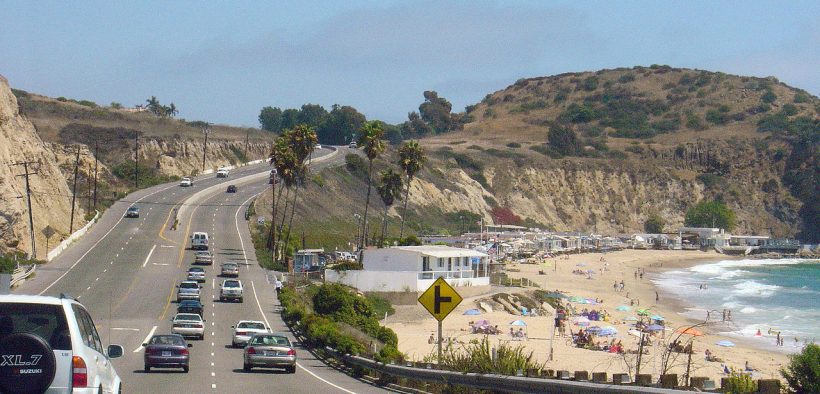Trump Administration To Revoke California Fuel Emission Standards

“This will be the biggest fight in environmental law since the Clean Power Plan. Maybe bigger.”
President Trump said his administration would revoke an Obama-era waiver on Wednesday that allowed California to set its own automobile emission standards, the latest step in the president’s campaign against environmental regulations and his predecessor’s legacy.
“Many more cars will be produced under the new and uniform standard, meaning significantly more JOBS, JOBS, JOBS! Automakers should seize this opportunity because without this alternative to California, you will be out of business,” tweeted Trump on Wednesday.
Trump’s move against California is part of his efforts to support the fossil fuel industry and kill efforts to fight climate change, as California has long been a national leader in regulating auto emissions. Automakers widely oppose the Trump administration’s efforts to strip emission targets, as they would remove regulatory certainty and severely disrupt the market.
The Department of Justice has fought against the automakers’ pleas, however, opening an antitrust investigation earlier this month into an agreement on fuel economy standards between auto-manufacturers Ford, Volkswagen, Honda and BMW and the state of California. Critics argue there are no sufficient grounds for viewing the agreement between businesses and a state government as an antitrust violation, and believe the investigation is retaliation for embarrassing the president.
“While the White House has abdicated its responsibility to the rest of the world on cutting emissions and fighting global warming, California has stepped up,” California Governor Gavin Newsom said. “It’s a move that could have devastating consequences for our kids’ health and the air we breathe, if California were to roll over. But we will not.” Notably, greenhouse gases from transportation are the single largest source of emissions in the United States.
Newsom spoke of how the change would put the U.S. behind the curb of other countries, as every other nation in the world acknowledges the reality of climate change and is a member of the Paris Agreement. The change would also cause consumers to spend more on gas, resulting “in 320 billion more gallons of oil burned and spewed into our air,” according to Newsom. “And hurt car companies’ ability to compete in a global market. It’s bad for our air. Bad for our health. Bad for our economy.”
Critics, such as California Attorney General Xavier Becerra, described the move as an infringement on state’s rights, supposedly a core tenet of the Republican platform. Environmental Protection Agency head Andrew Wheeler, who worked as a coal lobbyist before joining the agency and has been committed to slashing environmental regulations, responded to this criticism: “We embrace federalism and the role of the states, but federalism does not mean that one state can dictate standards for the nation.”
Becerra was unconvinced by this argument, calling the Trump administration’s move a “desperate plan to rob our state of its longstanding authority to set vehicle emissions standards” at a news conference on Wednesday.
“Our message to those who claim to support states’ rights: don’t trample on ours,” said Becerra.
A Washington Post-Kaiser Family Foundation poll released Friday found that 68 percent of Californians oppose Trump’s move to slash mileage standards, while 61 percent support California’s stronger enforcements.
The poll also found that 66 percent of Americans nationwide oppose Trump’s efforts to end fuel efficiency standards rather than maintain the Obama administration’s targets for 2025. 67 percent of Americans also said they support states setting more ambitious fuel efficiency rules than the federal government.
Analysts believe the coming legal battle between California and the Trump administration could make it all the way to the Supreme Court.
“This will be the biggest fight in environmental law since the Clean Power Plan. Maybe bigger,” tweeted Nathan Richardson of the University of South Carolina School of Law.







